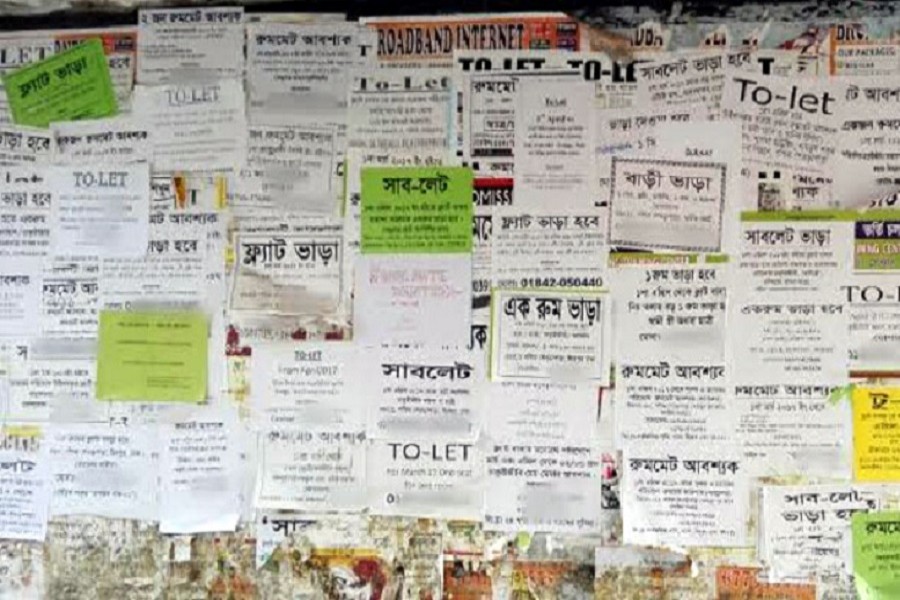Farzana Islam passed with flying colours from the highest academic seat of the country a few years back. Farzana completed graduation and postgraduation in mathematics from the University of Dhaka.
She was a residential student at Ruqayyah Hall.
After submitting master’s thesis, Farzana had to vacate her hall seat and to go back home in Chandpur as she thought living in sublet arrangement in the capital was not secured enough for her.
Thus her dream of pursuing a career began fading away.
After several months, she got married and ended up becoming a homemaker.
Farzana’s story indeed represents those of hundreds of female graduates, who simply cannot pursue jobs just because of lodging problems in Dhaka, the city of opportunity.
There are some facilities – though utterly inadequate for working women to reside – but nothing for the young women, who complete their education and search for jobs.
Farzana, who stood first in her master’s exam and sixth in honours in mathematics from DU, repents, “I could not get myself prepared for the highly competitive job market for lack of proper support. I faced some interviews with only two or three days of preparation and unsurprisingly I failed.”
She thinks that if she could manage a good accommodation in Dhaka after coming out of Ruqayyah Hall probably today she would be holding a service.
Another job seeker Kamrunnahar Nazifa, who has recently completed her study from Dhaka University’s economics department, vacated her seat, finishing up in a private female hostel.
Nazifa said the environment of the dormitory and that of the private hostel are completely different. She is not content with her present abode because of inadequate security and poor study environment.
She said, “In sublet houses three or four persons have to share a small room with a family flat which is very insecure and we get very little room for our study. The government has no facility for unemployed women.”
She opined that living in the costly cities like Dhaka is a challenge for a job seeking woman.
There are only seven government-run hostels for working women in the country, of which three are in Dhaka.
According to the information available on the website of the Department of Women Affairs, there are 886 seats for working women in Dhaka’s government-run hostels but, no place for the unemployed ones.
Job-seeking women, upon completion of their studies in the capital, have to depend on sublet houses, private hostels or get back home in their own districts, reports UNB.
Jannatul Ferdous Nila, ex-student of Dhaka University, demanded the government should address the accommodation problem of educated job-seeking women, who come from outside of the city but can’t pursue their dream of preparing for a good career.
Asked, State Minister for Women and Children Affairs Meher Afroz Chumki said the ministry has residential dormitories for working women, but still they do not have any plan for the ones who are searching for jobs.


